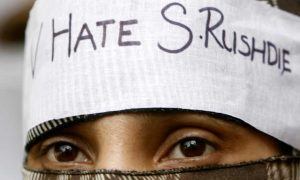Kenan Malik in The Guardian:
 Thirty years ago last week, Salman Rushdie’s The Satanic Verses was published. Rushdie was then perhaps the most celebrated British novelist of his generation. His new novel, five years in the making, had been expected to set the world alight, though not quite in the way that it did.
Thirty years ago last week, Salman Rushdie’s The Satanic Verses was published. Rushdie was then perhaps the most celebrated British novelist of his generation. His new novel, five years in the making, had been expected to set the world alight, though not quite in the way that it did.
The novel was, Rushdie suggested, both about “migration, metamorphosis, divided selves, love, death” and “a serious attempt to write about religion and revelation from the point of view of a secular person”. At its heart was a clash of race, religion and identity that, ironically, prophesied the controversy that engulfed the novel and still shapes our lives today.
Within a month, The Satanic Verses had been banned in Rushdie’s native India. By the end of the year, protesters had burned a copy of the novel on the streets of Bolton. Then, on Valentine’s Day 1989, came the event that transformed the controversy – Ayatollah Khomeini’s fatwa calling for Rushdie’s death.
The affair marked a watershed in British political and cultural life. There had long been conflicts between minority communities and the state, from the Notting Hill riots of the 1950s to the Grunwick dispute in 1977, to the inner-city disturbances of the 1980s. These were in the main political conflicts, workplace struggles or issues of law and order.
The Rushdie affair was different.
More here.
